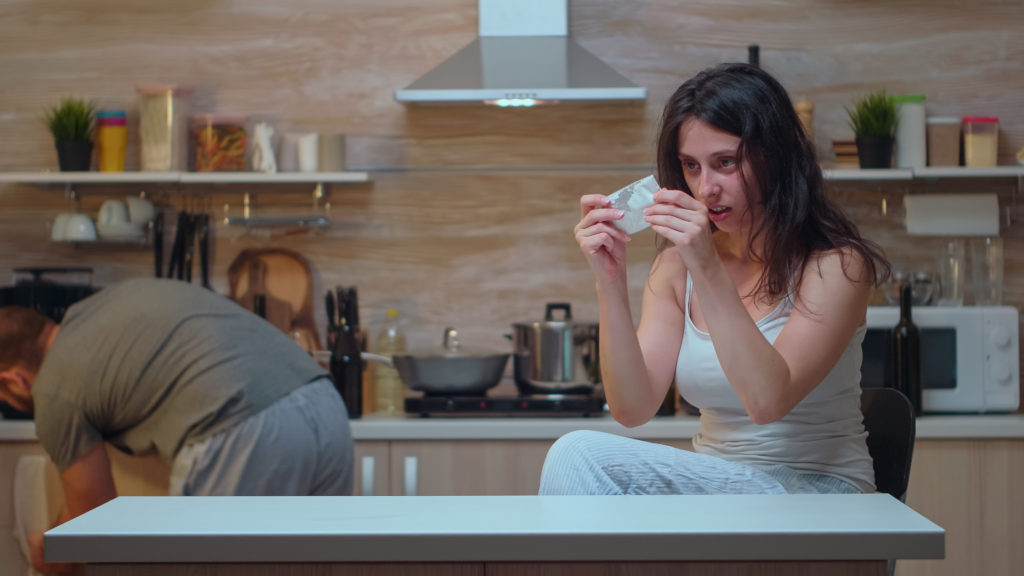COVID-19 Takes Dark Toll on Substance Use Disorder
Isolation and a COVID-19 surge are big contributors, along with limited resources due to facilities being shut down or at partial capacity to follow social distancing guidelines. 
(This article originally appeared on TheDetroitNews.com )
By Ashley Zlatopolsk
The pandemic has taken a financial, emotional and social toll on Americans. But the psychological toll of COVID-19 is one of the most alarming as we approach nearly a year of social distancing, job loss and stress about the health and safety of loved ones.
The Michigan Department of Health and Human Services reported EMS responses for ‘probable’ opioid overdoses during April-August 2020 were 22.4% higher than during April-August 2019.
Isolation and a COVID-19 surge are big contributors, along with limited resources due to facilities being shut down or at partial capacity to follow social distancing guidelines.
“A lot of folks with underlying depression or anxiety are self-medicating,” says Dr. Elizabeth Bulat, medical director of addiction services at Henry Ford Maplegrove Center.
A general reluctance to seek medical and mental health care out of fear of leaving one’s home may be contributing as well, Bulat says. Substance use disorder can go untreated for months as even factors such as lack of transportation, childcare and limited access to technology – especially for virtual care – can all contribute to barriers in treatment, she says.
From May through August, Community Care Services, a Lincoln Park-based outpatient mental health and substance use disorder treatment center, saw a 20% decrease in the number of people reaching out for help. They also saw an increase in overdoses.
When those businesses shut down, access to virtual care was severely restricted, said Susan Kozak, executive director of Community Care Services. While phone sessions were still an option, she says they’re inadequate for people who need more dedicated help.
“A lot of our clients will go use a public Wi-Fi system, such as a library or a McDonald’s,” Kozak says. “You’re barely scratching the surface. And what our clinicians are telling us is that people are relapsing continuously due to stress from COVID, isolation and lack of support systems.” 
Kozak says CCS’s clients are developing paranoia from spending too much time alone, which negatively impacts existing mental health concerns.
Reduced daily structure from job loss or social distancing can also exacerbate existing symptoms.
“People don’t have that structure to leave their house and be accountable at work,” Bulat says. “That’s been a really solid vacuum in their addictions and they have nothing to do. This makes it much easier to continue their (substance) use or escalate it. It’s just become this perfect storm for people (managing addictions).”
Alcohol abuse has also become a growing problem in Michigan. Throughout the pandemic, Maplegrove has seen up to a 25% increase in alcohol admissions. Their population admitted for alcohol abuse that generally sits at 60% has now risen past 80% as of September, Bulat says. It’s one of many stark increases that paint a picture of the devastating psychological effects of the pandemic.
Thousands of people are looking for help, and they often don’t know where to turn. Many mental health clinics are seeing long waitlists and reduced staff from budget cuts. As people wait for care or can’t access care, addictions and substance abuse have potential to grow out of control.
“While the lockdowns were originally only two weeks, (restrictions) have stretched to nearly a year now,” says Kelly Houseman, a Michigan-based mental health counselor. “This causes temporary ‘treat yourself’ behaviors to turn into ingrained habits.”
For addiction recovery, one of the key elements is social interaction, says Houseman, who added that limited activities due to social distancing can cause mixed emotions for people, which can worsen existing substance use tendencies or cause new behaviors to develop.
“When times get scary and unknown, we try to control what we can and sometimes that means escaping,” Houseman continues, “and turning to substances so we don’t have to feel those emotions that are running rampant.”
She recommends that people seek help as soon as possible for substance use or abuse when it begins to impact their quality of life. Resources are still out there, Houseman explains, even if they exist in different forms. She says many therapists are now changing their hours to accommodate more patients on nights and weekends.
Virtual visits have also become a regular option for traditional mental health therapy, while free mental care services in the community such as HUDA Clinic in Detroit serve people without health insurance. Alcoholics Anonymous (AA) and Narcotics Anonymous (NA) are also free and offer virtual meetings.
Small positive changes can help people who struggle with mental health, Houseman says.
“If you can get a workout in at home, any kind of (productive) stress relief behaviors will give you a little bit more leeway and grace right now,” she says.
Substance use disorder can be beat with the right help and effort.
“Try and keep regular habits,” Kozak says. “Try to get a routine back in your life.”
Is your substance use is becoming problematic during quarantine?
Take this short quiz to find out!



